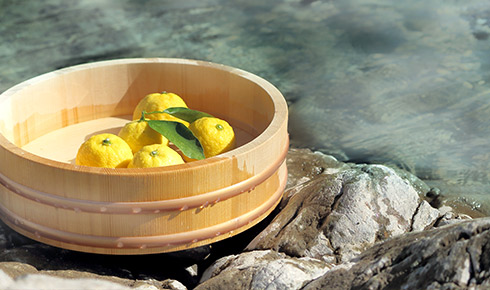
The winter solstice, which occurs around December 22nd each year, is called touji (literally, “the extremity of winter”) in Japanese. In the Northern Hemisphere, this is the time of year with the shortest days. Because this barren time was often associated with fears of food shortages, touji was believed to be the day of the year closest to death. This gave rise to annual folk events, at which people used rituals to drive away evil, warmed themselves up, and prayed for good health.
The most common touji custom in Japan today is bathing in a tub of warm water containing yuzu citrus. The fruit’s refreshing fragrance is believed to banish evil, and it also stimulates blood circulation. Another popular custom is to boil and eat squash, or, in some regions, porridge made of azuki red beans.
The brighter side of touji is that it is the day upon which the sun begins to regain its strength. People celebrate this on the solstice or on the following day, all over the world. Long ago, the Japanese considered touji to be the first day of the New Year, and the nobility would hold celebrations to mark the change.
Updated: 26 October, 2017